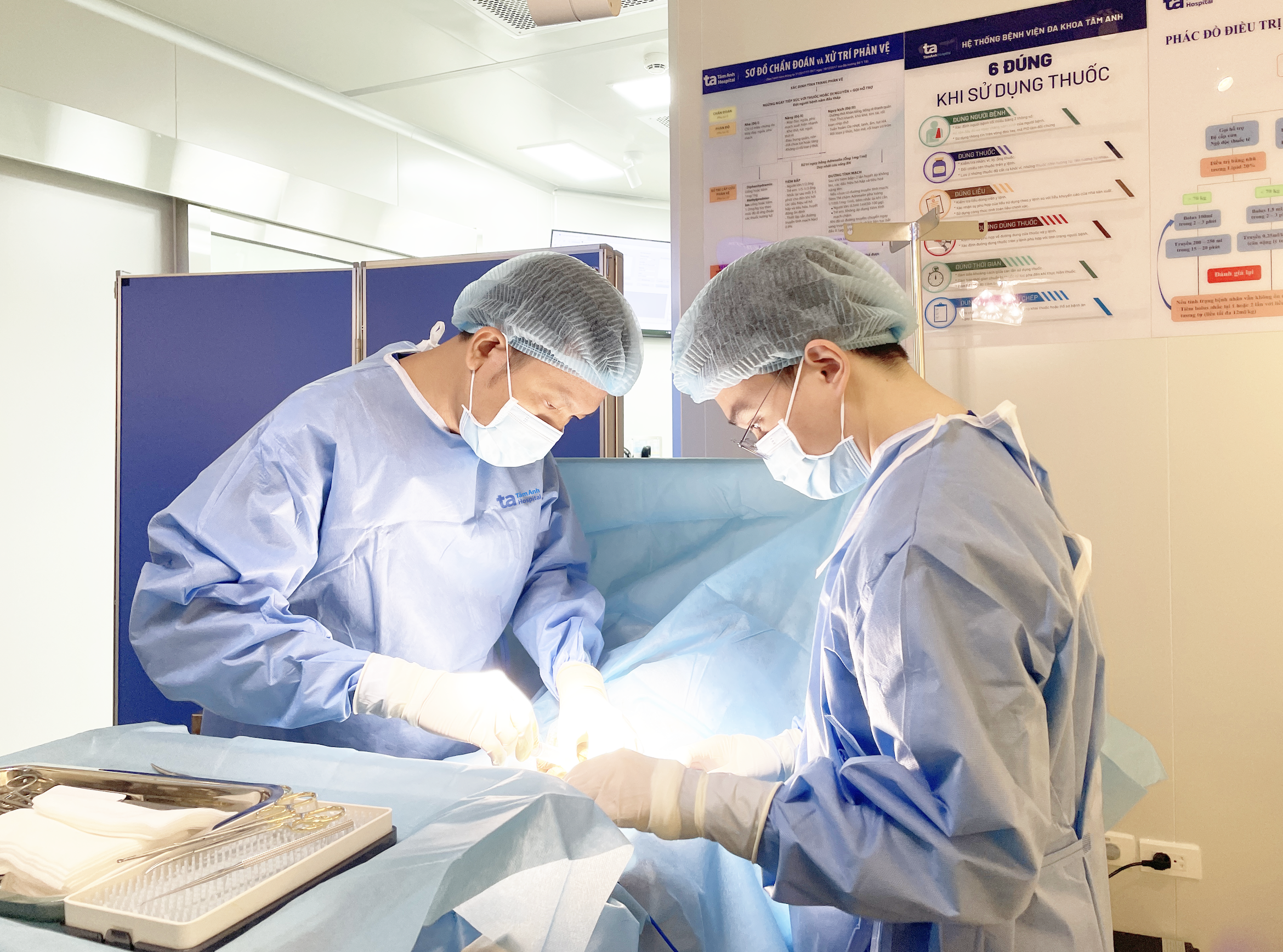Tim, an Australian man, underwent a vasectomy 10 years ago after having children. In 2023, he and his wife decided they wanted to expand their family. They traveled to Thailand for a vasectomy reversal, but the procedure was unsuccessful. Tim experienced complications, including infection and prolonged bleeding, resulting in significant medical expenses.
Last month, the couple traveled to Vietnam and consulted Dr. Le Dang Khoa, Head of the Assisted Reproduction Unit at Tam Anh General Hospital - District 8. Dr. Khoa suggested two options: another vasectomy reversal combined with microsurgical epididymal sperm aspiration (MESA) for in vitro fertilization (IVF), or proceeding directly with IVF using percutaneous epididymal sperm aspiration (PESA). Concerned about potential complications and due to time constraints, Tim opted for PESA, a simpler, less invasive, and more cost-effective procedure.
The PESA procedure was performed quickly and yielded enough sperm for one IVF cycle (10-15 eggs) with additional sperm frozen for a potential future cycle. His wife's eggs were retrieved, resulting in 4 high-quality day-5 embryos. One embryo was successfully transferred, leading to a successful pregnancy.
 |
Dr. Khoa (left) performing sperm retrieval. Photo: Tam Anh General Hospital - District 8 |
Dr. Khoa (left) performing sperm retrieval. Photo: Tam Anh General Hospital - District 8
Dr. Khoa emphasized that while vasectomy is a highly effective permanent contraceptive method, men should carefully consider their future family plans before undergoing the procedure. Reversing a vasectomy is a more complex procedure than the initial vasectomy and carries potential complications such as infection, bleeding, and damage to arteries or nerves in the urogenital area.
He recommends having vasectomy reversals performed at reputable medical facilities with adequate equipment to increase the chances of success. At Tam Anh IVF Center, vasectomy reversals are performed with a 30x magnification microscope, allowing for precise procedures, minimizing damage to reproductive organs, promoting faster recovery, and reducing complications. The center has a high success rate in treating infertility caused by blocked vas deferens, with approximately 60% of their patients being foreigners or overseas Vietnamese.
Dinh Lam
*The patient's name has been changed.
| Readers can submit questions about infertility here for doctors to answer. |












